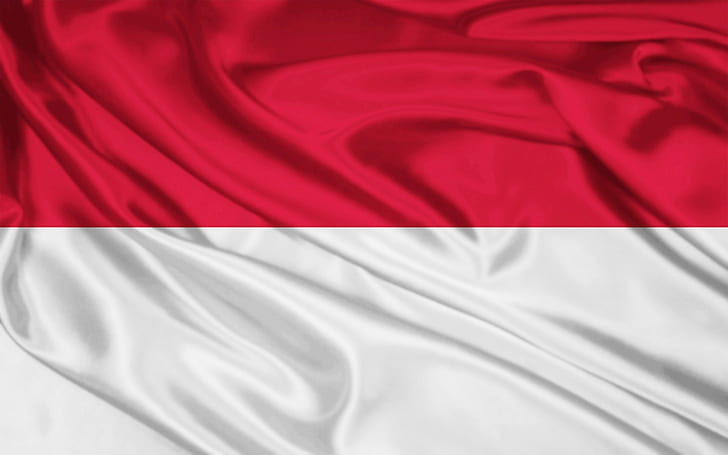- Introduction
- Facts about Indonesia History:
- Facts about Indonesia Culture:
- Facts about Indonesia Geography:
- Facts about Indonesia Political Situation:
- Facts about Indonesia Economy:
- Facts about Indonesia Society:
- Facts about Indonesia Ethnic Diversity
- Facts about Indonesia Languages
- Facts about Indonesia Religion
- Facts about Indonesia Conflict and War
- Facts about Indonesia Reconstruction Efforts
- Facts about Indonesia International Relations
- Facts about Indonesia Humanitarian Issues
- Facts about Indonesia Women’s Rights
- Facts about Indonesia Education
- Facts about Indonesia Currency
- Facts about Indonesia Infrastructure
- Facts about Indonesia Natural Resources
- Facts about Indonesia Tourism
- Facts about Indonesia Future Prospects
- Indonesia Map
- Conclusion
- Frequently Asked Questions About Indonesia
Introduction
Indonesia, an archipelago country involving more than 17,000 islands, Facts about Indonesia is a place that is known for different societies, shocking scenes, and rich history. From its dynamic urban communities to its immaculate sea shores and old sanctuaries, Indonesia offers an embroidery of encounters for explorers and an intricate embroidered artwork of life for its different populace. This country, with its tremendous ethnic variety, dialects, and strict practices, has gone through huge changes over now is the ideal time, forming its political scene, economy, and society. In this investigation, we dig into different features of Indonesia, from its complicated ethnic texture and strict congruity to its difficulties and promising future possibilities.
Facts about Indonesia History:
- Indonesia’s set of experiences traces all the way back to old times, with proof of early human home tracked down on the island of Java.
- The archipelago was once a focal point of exchange, drawing in vendors from China, India, and the Center East.
- European colonization started in the sixteenth hundred years, with the Dutch laying out command over the islands and shaping the Dutch East Indies.
- Indonesia pronounced autonomy from Dutch rule on August 17, 1945, following The Second Great War and Japanese occupation.
- The battle for freedom, drove by figures like Sukarno and Hatta, involved both political talks and furnished obstruction.
- Indonesia experienced political disturbance during the 1960s, including a time of military rule under Suharto, who represented for more than thirty years.
- The late twentieth century saw a time of democratization and decentralization, set apart by critical political changes.
- Indonesia confronted monetary difficulties during the Asian monetary emergency of the last part of the 1990s, prompting far and wide friendly and political turmoil.
- The nation has since gained ground in democratization, basic freedoms, and financial turn of events, in spite of the fact that difficulties remain.
- Historical destinations, for example, Borobudur and Prambanan sanctuaries exhibit Indonesia’s rich social legacy.
Facts about Indonesia Culture:
- Indonesia flaunts a different social scene, with more than 300 ethnic gatherings and unmistakable social practices.
- Traditional expressions like batik, gamelan music, and wayang puppetry are basic to Indonesian culture.
- The nation praises a huge number of celebrations and functions, impacted by Hindu, Buddhist, Islamic, and native convictions.
- Indonesian food is eminent for its assortment and flavors, with dishes like nasi goreng and rendang acquiring worldwide recognition.
- Traditional moves like the Javanese “Gamelan” and Balinese “Kecak” mirror the country’s social variety.
- Family and local area are fundamental to Indonesian culture, areas of strength for with securities and aggregate direction.
- The idea of “gotong royong,” or shared collaboration, highlights numerous parts of Indonesian culture.
- Traditional design, for example, the Minangkabau rumah gadang and Toraja tongkonan, reflects nearby traditions and convictions.
- Indonesian writing, including works by writers like Pramoedya Ananta Toer, investigates subjects of personality, imperialism, and modernization.
- Contemporary Indonesian craftsmanship, including painting, model, and film, reflects both customary impacts and worldwide patterns.
Facts about Indonesia Geography:
- Indonesia is an archipelago involving more than 17,000 islands, extending across a tremendous sea region.
- The nation rides the equator, making it one of the most biodiverse districts on The planet.
- Major islands incorporate Java, Sumatra, Borneo (Kalimantan), Sulawesi, and Papua, each with remarkable scenes and biological systems.
- Indonesia is home to different normal highlights, including tropical rainforests, dynamic volcanoes, coral reefs, and flawless sea shores.
- The archipelago is situated inside the Pacific Ring of Fire, bringing about incessant seismic movement and volcanic ejections.
- Indonesia’s environment differs from tropical rainforest in the west to savanna and desert in the east, impacted by rainstorm designs.
- The nation is wealthy in normal assets, including oil, petroleum gas, coal, minerals, and wood.
- Environmental preservation endeavors face difficulties because of deforestation, contamination, and environment annihilation.
- Indonesia is helpless against cataclysmic events like seismic tremors, waves, volcanic emissions, and floods.
- The assorted geology of Indonesia gives open doors to ecotourism, experience travel, and outside amusement.
Facts about Indonesia Political Situation:
- Indonesia is a vote based republic with an official arrangement of government.
- The president fills in as both head of state and head of government, chose by famous decision in favor of a five-year term.
- The political scene is portrayed by a multi-party framework, with parties addressing different interests and philosophies.
- The Individuals’ Consultative Gathering (MPR) is the most noteworthy regulative body, liable for sacred revisions and choosing the president.
- Indonesia has encountered a change from tyrant rule to a vote based system since the last part of the 1990s, set apart by political changes and decentralization.
- Despite advancement, challenges stay in regions like debasement, discretionary straightforwardness, and law and order.
- The military keeps up with huge impact in Indonesian legislative issues, despite the fact that its job has reduced since the Suharto period.
- Regional independence has been executed to decentralize administration and engage neighborhood legislatures.
- Civil society assumes an essential part in Indonesia’s political scene, supporting for common liberties, natural security, and civil rights.
- Indonesia’s political strength and popularity based progress are key elements in its worldwide relations and financial turn of events.
Facts about Indonesia Economy:
- Indonesia has a blended economy, with farming, assembling, administrations, and regular assets adding to Gross domestic product.
- The nation is the biggest economy in Southeast Asia and an individual from the G20 gathering of significant economies.
- Key ventures incorporate palm oil, materials, auto, hardware, and the travel industry.
- Indonesia is a significant exporter of wares, for example, coal, flammable gas, palm oil, and elastic.
- The government has sought after financial changes to draw in unfamiliar speculation, further develop framework, and upgrade seriousness.
- Challenges to monetary advancement incorporate pay disparity, destitution, defilement, and administrative shortcoming.
- Indonesia has encountered consistent financial development lately, determined by homegrown utilization and venture.
- The nation faces gambles from outer factors, for example, worldwide financial stoppages, ware value changes, and exchange strains.
- Infrastructure improvement is really important for Indonesia, with drives to further develop transportation, energy, and media communications organizations.
- Sustainable turn of events and natural assurance are progressively significant contemplations in Indonesia’s monetary arrangements.
Facts about Indonesia Society:
- Indonesian culture is described by social variety, with many ethnic gatherings and dialects spoken across the archipelago.
- Family and local area ties areas of strength for are, more distant families frequently living respectively and offering help to each other.
- Respect for older folks and authority figures is profoundly imbued in Indonesian culture, impacting accepted practices and conduct.
- Hospitality and liberality are esteemed attributes, with visitors frequently getting warm invites and contributions of food and drink.
- Social ordered progressions in light old enough, orientation, and economic wellbeing assume a huge part in relational connections.
- Traditional traditions and ceremonies, like weddings and memorial services, are significant events for social holding and strict articulation.
- Urbanization and modernization have prompted changes in normal practices and ways of life, especially among more youthful ages.
- Social government assistance programs expect to give help to weak gatherings like poor people, old, and impaired.
- Social versatility is conceivable through schooling and business venture, despite the fact that inconsistencies continue among metropolitan and country regions.
- Civil society associations assume a pivotal part in resolving social issues like neediness, schooling, medical services, and basic liberties.
Facts about Indonesia Ethnic Diversity
- Archipelago of Variety: Indonesia is unbelievably assorted ethnically, with more than 300 particular ethnic gatherings spread across its large number of islands.
- Major Gatherings: Probably the biggest ethnic gatherings incorporate Javanese, Sundanese, Batak, Minangkabau, Betawi, Bugis, and Acehnese.
- Javanese Greater part: The Javanese are the biggest ethnic gathering, including around 40% of the populace, fundamentally focused on the island of Java.
- Sundanese Presence: Sundanese individuals are the second-biggest gathering, basically occupying West Java.
- Papuan Variety: Papua and West Papua territories are home to various native Papuan clans, each with unmistakable societies and dialects.
- Batak Culture: The Batak public, dwelling in North Sumatra, are known for their extraordinary social practices, for example, the mutual longhouses and customary moves.
- Balinese Personality: Balinese culture is particular inside Indonesia, with its Hindu-greater part populace and energetic expressions, moves, and services.
- Toraja Customs: In South Sulawesi, the Toraja public have rich burial service customs and extraordinary design.
- Dayak People group: Native Dayak bunches in Kalimantan (Borneo) have assorted conviction frameworks and are known for their longhouses and multifaceted tattoos.
- Betawi Combination: The Betawi nation in Jakarta are viewed as a combination of different societies, mirroring the capital city’s different history.
Facts about Indonesia Languages
- Official Language: The authority language of Indonesia is Bahasa Indonesia, a normalized type of Malay.
- Linguistic Variety: Indonesia is inconceivably phonetically assorted, with north of 700 living dialects spoken across the archipelago.
- Javanese Impact: Javanese is spoken by the biggest ethnic gathering and essentially affects Bahasa Indonesia’s turn of events.
- Papuan Dialects: Papua and West Papua territories have a high variety of dialects, with north of 270 native dialects spoken in these districts.
- Balinese and Sundanese: Balinese and Sundanese are additionally conspicuous territorial dialects with their own contents and writing.
- English Capability: English is progressively spoken, particularly in metropolitan regions and among the more youthful populace, because of its significance in business and the travel industry.
- Chinese Impact: Chinese dialects, especially Hokkien and Hakka, are spoken by the Chinese Indonesian people group.
- Languages In danger: A few native dialects in distant regions are in danger of vanishing because of lessening quantities of speakers and absence of conservation endeavors.
- Dialects: Bahasa Indonesia has a few local vernaculars, mirroring the different etymological scene.
- Efforts for Safeguarding: Endeavors are progressing to archive and save imperiled dialects through training programs and social drives.
Facts about Indonesia Religion
- Dominant Religion: Indonesia is overwhelmingly Muslim, with around 87% of the populace sticking to Islam.
- Islam in Indonesia: The type of Islam rehearsed in Indonesia is moderate and described by social syncretism, consolidating components of neighborhood customs.
- Religious Opportunity: Regardless of being overwhelmingly Muslim, Indonesia formally acknowledges six religions (Islam, Protestantism, Catholicism, Hinduism, Buddhism, and Confucianism) and ensures opportunity of religion.
- Christianity: Christianity is the second-biggest religion in Indonesia, with around 10% of the populace, containing the two Catholics and Protestants.
- Hinduism: Bali is known for its Hindu greater part, where Hinduism is rehearsed by around 83% of the island’s populace.
- Buddhism: Buddhism has a long history in Indonesia, especially in Java, and is drilled by around 1% of the populace.
- Religious Resilience: Indonesia’s aphorism “Solidarity in Variety” mirrors the country’s obligation to strict pluralism and resistance.
- Interfaith Relations: Interfaith discoursed and participation among strict networks are supported, encouraging tranquil concurrence.
- Traditional Convictions: A few native networks keep on rehearsing animism and other customary convictions close by standard religions.
- Pancasila: The state philosophy of Pancasila advances faith in one God while regarding different strict convictions.
Facts about Indonesia Conflict and War
- Papua Clash: The Papua struggle includes dissident developments in the areas of Papua and West Papua, looking for freedom from Indonesia.
- Aceh Rebellion: Aceh, on the island of Sumatra, encountered a drawn out struggle for freedom, which was authoritatively settled with a nonaggression treaty in 2005.
- East Timor Freedom: East Timor acquired autonomy from Indonesia after a mandate in 1999, following a time of contention and savagery.
- Religious Savagery: Indonesia has seen occurrences of strictly propelled brutality, quite among Muslims and Christians in districts like Maluku and Sulawesi.
- Ethnic Struggles: A few districts have encountered ethnic strains, like contentions between Madurese travelers and native gatherings.
- Terrorism: Indonesia has confronted psychological militant assaults, including the 2002 Bali bombings and ensuing assaults by radical gatherings like Jemaah Islamiyah.
- 1965 Mass Killings: In 1965, Indonesia encountered a mass killing of thought socialists and left-wing supporters, prompting critical political and social commotion.
- Moluccas Struggle: The Maluku islands have seen partisan viciousness among Muslims and Christians, in spite of the fact that endeavors for harmony have been progressing.
- Government Reactions: The Indonesian government has gone to lengths to address clashes, including harmony talks, security activities, and compromise endeavors.
- International Help: Different worldwide associations and nations experience upheld harmony building drives and compromise endeavors in Indonesia.
Facts about Indonesia Reconstruction Efforts
- Post-Debacle Reproduction: Indonesia has confronted various catastrophic events, including seismic tremors, tidal waves, and volcanic emissions, requiring significant remaking endeavors.
- 2004 Indian Sea Tidal wave: The staggering 2004 tidal wave prompted one of the biggest global reproduction endeavors ever, especially in Aceh.
- Yogyakarta Seismic tremor: The 2006 quake in Yogyakarta brought about critical harm, provoking zeroed in endeavors on revamping framework and networks.
- Sulawesi Tremor: The 2018 quake and torrent in Sulawesi likewise required broad remaking, especially in Palu and encompassing regions.
- Infrastructure Turn of events: Remaking endeavors frequently include modifying homes, schools, emergency clinics, and basic framework to make networks stronger to future catastrophes.
- Government Drives: The Indonesian government, frequently with worldwide guide, leads reproduction endeavors and puts resources into long haul recuperation plans.
- Community Support: Neighborhood people group, NGOs, and volunteers assume urgent parts in remaking endeavors, guaranteeing projects address nearby issues.
- Resilience Structure: Close by actual remaking, endeavors center around reinforcing catastrophe readiness, early admonition frameworks, and supportable improvement rehearses.
- Foreign Help: Numerous nations and associations give help and specialized help to reproduction projects, supporting the recuperation cycle.
- Economic Recuperation: Remaking endeavors expect to reconstruct framework as well as renew nearby economies and vocations affected by calamities.
Facts about Indonesia International Relations
- Regional Discretion: Indonesia assumes a huge part in Southeast Asia, being an establishing individual from ASEAN (Relationship of Southeast Asian Countries) and facilitating its base camp in Jakarta.
- Bilateral Relations: Indonesia keeps up with discretionary relations with nations around the world, with an emphasis on monetary collaboration, exchange, and social trades.
- Strategic Organizations: The nation has key associations with different countries, including Australia, the US, China, and Japan, in regions like protection and financial turn of events.
- ASEAN Initiative: Indonesia frequently plays an influential position inside ASEAN, upholding for territorial soundness, financial joining, and political answers for clashes.
- Maritime Discretion: With its immense sea domain, Indonesia underlines oceanic tact, especially in issues connected with the South China Ocean and sea security.
- Trade Arrangements: Indonesia is an individual from economic accords, for example, the ASEAN Streamlined commerce Region (AFTA) and has consented to different reciprocal exchange arrangements to improve monetary ties.
- Environmental Discretion: Given its rich biodiversity and worries about environmental change, Indonesia takes part in worldwide natural discussions and drives.
- Peacekeeping: Indonesia contributes troops to UN peacekeeping missions, exhibiting its obligation to worldwide harmony and security.
- Cultural Discretion: Indonesia advances its different culture universally through occasions like social celebrations, workmanship presentations, and instructive trades.
- Humanitarian Help: Indonesia gives philanthropic guide to nations impacted by catastrophic events and clashes, mirroring its obligation to worldwide fortitude.
Facts about Indonesia Humanitarian Issues
- Natural Fiascos: Indonesia is inclined to seismic tremors, tidal waves, volcanic ejections, and floods, prompting critical compassionate difficulties.
- Response to Fiascos: The public authority, NGOs, and worldwide associations team up to give crisis alleviation, sanctuary, food, and clinical help with the fallout of calamities.
- Displacement: Catastrophic events and clashes frequently lead to uprooting, with a huge number being inside dislodged or looking for shelter in brief safe houses.
- Access to Clean Water: A few regions, particularly in distant districts, face difficulties in getting to clean water, prompting medical problems and the spread of sicknesses.
- Malnutrition: Notwithstanding progress, lack of healthy sustenance stays a worry, especially among kids in country and underserved networks.
- Healthcare: Admittance to medical care administrations can be restricted in specific regions, influencing maternal and youngster wellbeing results.
- Poverty: Neediness rates fluctuate across Indonesia, with rustic regions and a few metropolitan regions confronting huge provokes in admittance to essential necessities.
- Education: Quality training isn’t similarly available to all, especially in far off regions, affecting kids’ turn of events and future open doors.
- Child Insurance: Issues, for example, kid work, dealing, and abuse remain areas of worry that require progressing endeavors for counteraction and assurance.
- Gender Disparity: Ladies and young ladies might confront segregation, restricted admittance to instruction and medical care, and higher weakness to viciousness and abuse.
Facts about Indonesia Women’s Rights
- Legal Advances: Indonesia has made legitimate advances in ladies’ freedoms, including regulations against aggressive behavior at home and lewd behavior.
- Gender Balance: The public authority has focused on advancing orientation fairness, however challenges stay in execution and implementation.
- Political Portrayal: Ladies’ political portrayal has expanded, with a share framework guaranteeing a base number of female lawmakers.
- Education Access: Endeavors to further develop admittance to schooling for young ladies have been progressing, prompting higher enlistment rates.
- Workforce Support: Ladies’ cooperation in the labor force has been expanding, especially in areas like money, training, and medical services.
- Traditional Jobs: Notwithstanding progress, conventional orientation jobs actually impact cultural assumptions, particularly in country regions.
- Maternal Wellbeing: Upgrades in maternal wellbeing administrations have decreased maternal death rates, however variations among metropolitan and provincial regions persevere.
- Child Marriage: Indonesia has one of the greatest paces of youngster marriage around the world, with endeavors to raise the legitimate age for marriage.
- Domestic Laborers: Homegrown specialists, frequently ladies, face difficulties like low wages, extended periods of time, and absence of lawful insurances.
- Awareness Missions: Common society associations and the public authority run missions to bring issues to light about ladies’ privileges and orientation based savagery.
Facts about Indonesia Education
- Education Framework: Indonesia has a different school system, going from state funded schools to private and worldwide establishments.
- Primary Schooling: Essential instruction is necessary and free, however access and quality change fundamentally across locales.
- Gender Variations: Endeavors are continuous to diminish orientation abberations in training, especially at more elevated levels and in country regions.
- Quality Difficulties: Difficulties incorporate stuffed homerooms, absence of qualified instructors, and insufficient offices.
- Vocational Schooling: Professional schools offer preparation in different abilities, getting ready understudies for explicit vocations.
- Higher Schooling: Indonesia has a developing number of colleges and universities, for certain organizations earning worldwide respect.
- Language of Guidance: Bahasa Indonesia is the essential language of guidance, with English likewise being educated as a subsequent language.
- Education Spending plan: The public authority has been expanding its spending plan for schooling to further develop offices and instructor preparing.
- Technical and STEM Training: Endeavors are in progress to advance specialized and STEM (Science, Innovation, Designing, and Math) schooling for labor force improvement.
- Distance Picking up: During the Coronavirus pandemic, distance learning programs were carried out, featuring the requirement for worked on computerized foundation in schooling.
Facts about Indonesia Currency
- Indonesian Rupiah (IDR): The authority money of Indonesia is the Indonesian Rupiah, signified by the image “Rp” and cash code IDR.
- Subunits: The Rupiah is separated into more modest units, with 1 Rupiah comprising of 100 “sen.” Be that as it may, because of expansion, sen are not generally utilized in ordinary exchanges.
- Banknotes and Coins: Banknotes come in groups of 1,000, 2,000, 5,000, 10,000, 20,000, 50,000, and 100,000 Rupiah. Coins are less regularly utilized yet are accessible in categories of 100, 200, 500, and 1,000 Rupiah.
- Currency Strength: The Indonesian Rupiah has encountered changes against major unfamiliar monetary standards, impacted by elements like worldwide financial circumstances and homegrown arrangements.
- Foreign Trade: Unfamiliar trade administrations are broadly accessible in banks, trade workplaces, and lodgings for travelers and organizations.
- ATMs and Credit only Installments: ATMs are pervasive in metropolitan regions, permitting simple admittance to cash. Credit only installment techniques, for example, e-wallets and charge cards, are turning out to be progressively famous.
- Currency Guidelines: Indonesia has guidelines on cash trade, including detailing necessities for enormous exchanges to forestall tax evasion.
- Tourist Money Utilization: Sightseers visiting Indonesia frequently utilize a blend of money (in nearby cash) and credit/charge cards, particularly in additional created regions.
- Inflation: Indonesia has encountered inflationary tensions previously, affecting the buying force of the Rupiah.
- Central Bank: Bank Indonesia (BI) is the national bank answerable for giving and controlling the Indonesian Rupiah, overseeing financial arrangement, and keeping up with cash soundness.
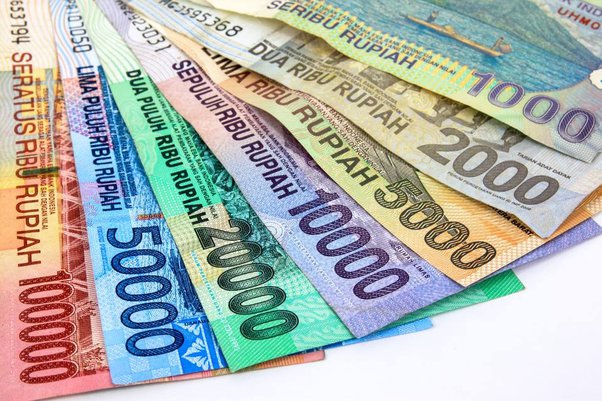
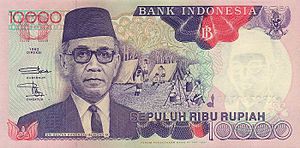
Facts about Indonesia Infrastructure
- Transportation: Indonesia has a different transportation foundation, including streets, rail lines, ports, air terminals, and streams.
- Road Organization: The street network associates significant urban communities and towns, yet provincial regions might have less evolved streets, influencing openness.
- Public Vehicle: Significant urban communities like Jakarta have public vehicle frameworks, including transports, passenger trains, and the BRT (Transport Quick Travel).
- Railways: Indonesia’s railroad organization, worked by PT Kereta Programming interface Indonesia (KAI), serves the two travelers and cargo, with plans for extension.
- Ports: Indonesia has various ports, like Tanjung Priok in Jakarta and Tanjung Perak in Surabaya, working with oceanic exchange.
- Airports: The nation has a few global air terminals, remembering Soekarno-Hatta for Jakarta and Ngurah Rai in Bali, supporting homegrown and worldwide travel.
- Energy Foundation: Indonesia’s energy framework incorporates petroleum treatment facilities, power plants (coal, gas, and inexhaustible), and transmission organizations.
- Telecommunications: Media communications framework has extended quickly, with boundless cell phone inclusion and developing web access.
- Water Stockpile and Disinfection: Endeavors are progressing to further develop water supply and sterilization foundation, especially in country regions.
- Smart City Drives: A few urban communities are executing brilliant city drives, coordinating innovation for productive administrations and foundation the executives.
Facts about Indonesia Natural Resources
- Rich Variety: Indonesia brags an abundance regular assets, including oil, petroleum gas, coal, minerals, backwoods, marine assets, and biodiversity.
- Oil and Gas: Indonesia is a critical maker of oil and petroleum gas, with investigation and creation exercises essentially moved in locales like Sumatra and Kalimantan.
- Coal: The nation is one of the world’s biggest exporters of coal, especially from districts like East Kalimantan and South Sumatra.
- Minerals: Indonesia has plentiful mineral assets, including gold, copper, nickel, tin, and bauxite, supporting the mining business.
- Forests: The country’s huge tropical woodlands are wealthy in biodiversity and significant lumber, however deforestation stays a significant natural concern.
- Marine Assets: Indonesia’s broad shore upholds a different marine environment, including fish stocks, coral reefs, and marine biodiversity.
- Palm Oil: Indonesia is the world’s biggest maker of palm oil, utilized in different enterprises yet confronting analysis for its natural effect.
- Geothermal Energy: The nation has the world’s biggest geothermal stores, offering potential for clean energy creation.
- Renewable Energy: Other than geothermal, Indonesia has huge potential for sun oriented, wind, and hydroelectric power age.
- Biodiversity: Indonesia is one of the most biodiverse nations all around the world, with various endemic species tracked down in its backwoods, oceans, and islands.
Facts about Indonesia Tourism
- Diverse Attractions: Indonesia offers different the travel industry attractions, from staggering sea shores and antiquated sanctuaries to dynamic social encounters.
- Bali: Bali is a top traveler location known for its lovely sea shores, lavish scenes, sanctuaries, and lively expressions scene.
- Ubud: Ubud, situated in Bali, is popular for its craft displays, customary dance exhibitions, and wellbeing withdraws.
- Yogyakarta: Yogyakarta in Java is prestigious for its rich social legacy, including Borobudur and Prambanan sanctuaries.
- Komodo Public Park: Home to the Komodo winged serpent, this UNESCO World Legacy site draws in nature aficionados and jumpers.
- Gili Islands: The Gili Islands close to Lombok offer a laid-back air with incredible swimming and plunging valuable open doors.
- Adventure The travel industry: Indonesia offers experience exercises, for example, climbing volcanoes (like Mount Bromo), surfing, and wilderness journeying.
- Cuisine: Indonesian cooking, with dishes like nasi goreng, rendang, and satay, is a feature for food-cherishing sightseers.
- Cultural Celebrations: Celebrations like Nyepi (Balinese New Year) and Toraja burial service functions give novel social encounters.
- Eco-The travel industry: The country’s assorted environments, from rainforests to coral reefs, offer open doors for eco-the travel industry and protection centered travel.
Facts about Indonesia Future Prospects
- Economic Development: Indonesia’s economy is ready for proceeded with development, driven by a developing populace, homegrown utilization, and venture.
- Infrastructure Turn of events: Interests in foundation, like transportation, energy, and media communications, will uphold financial extension.
- Urbanization: Urbanization patterns will keep, prompting the advancement of brilliant urban areas and expanded interest for metropolitan framework.
- Renewable Energy: Indonesia has tremendous potential for environmentally friendly power sources like geothermal, sun based, and hydroelectric power.
- Digital Economy: The computerized economy is supposed to develop, with expanding web infiltration and a flourishing tech startup environment.
- Tourism Development: The travel industry area is a vital concentration for development, with plans to further develop framework, advance supportable the travel industry, and draw in additional worldwide guests.
- Manufacturing Area: Indonesia intends to reinforce its assembling area, zeroing in on esteem added ventures and product expansion.
- Environmental Protection: Endeavors to address natural difficulties, for example, deforestation and marine preservation, will be focused on for manageable turn of events.
- Foreign Speculation: Indonesia will keep on drawing in unfamiliar venture, particularly in areas like framework, energy, and assembling.
Indonesia Map
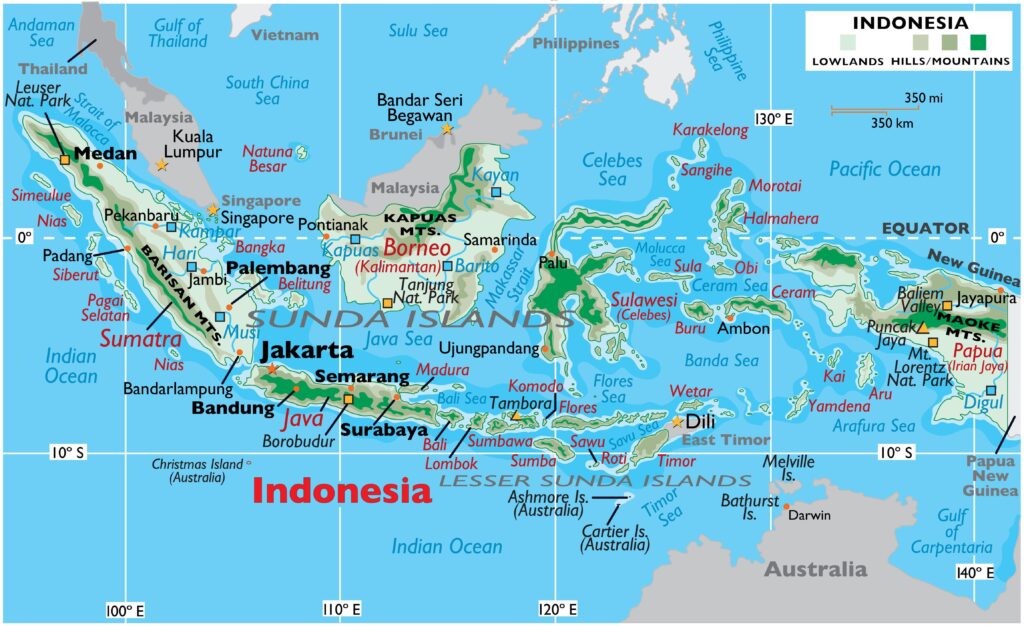
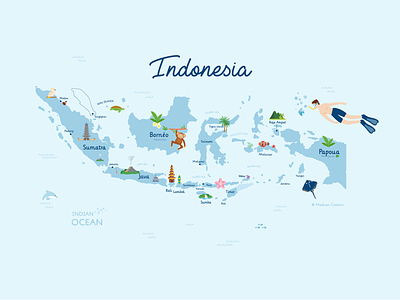
Conclusion
All in all, Indonesia remains at a critical point in its set of experiences, exploring through difficulties while tackling its immense potential. The country’s rich social legacy, normal excellence, and plentiful assets establish areas of strength for a point for monetary development and improvement. In any case, Indonesia additionally faces critical issues, for example, framework holes, ecological protection, and guaranteeing fair privileges for every one of its residents, particularly ladies.
also read 20+ Amazing Facts about India
for more Facts contents visit Facts Real
Frequently Asked Questions About Indonesia
What is the capital city of Indonesia?
The capital city of Indonesia is Jakarta, situated on the island of Java. It is the biggest city in Indonesia and fills in as the political, financial, and social focus of the country.
What number of islands make up Indonesia?
Indonesia is an archipelago containing north of 17,000 islands, making it the biggest island country on the planet. Nonetheless, around 6,000 of these islands are possessed.
What is the principal religion in Indonesia?
The primary religion in Indonesia is Islam, with most of the populace sticking to Sunni Islam. Indonesia is the world’s most crowded Muslim-larger part country.
What are some well known traveler objections in Indonesia?
Some famous traveler objections in Indonesia incorporate Bali, known for its sea shores, sanctuaries, and energetic culture; Yogyakarta, home to Borobudur and Prambanan sanctuaries; Komodo Public Park, where guests can see Komodo winged serpents; and Ubud, renowned for its specialty and customary exhibitions.
What dialects are spoken in Indonesia?
The authority language of Indonesia is Bahasa Indonesia, a normalized type of Malay. In any case, because of its assorted ethnic cosmetics, there are more than 700 dialects spoken across the archipelago, with Javanese being quite possibly of the most generally communicated in provincial language.
How assorted is the ethnic cosmetics of Indonesia?
Indonesia is unbelievably different ethnically, with more than 300 particular ethnic gatherings. The absolute biggest ethnic gatherings incorporate Javanese, Sundanese, Batak, Minangkabau, and Betawi. The Javanese are the biggest ethnic gathering, containing around 40% of the populace.
What are Indonesia’s vitally regular assets?
Indonesia is wealthy in normal assets, including oil, petroleum gas, coal, minerals (like gold, copper, and tin), woodlands, and marine assets. It is likewise the world’s biggest maker of palm oil.
What is the Indonesian cash?
The authority money of Indonesia is the Indonesian Rupiah, meant by the image “Rp” and cash code IDR. Banknotes come in sections of 1,000, 2,000, 5,000, 10,000, 20,000, 50,000, and 100,000 Rupiah, while coins are accessible in more modest divisions.
What are a few difficulties confronting Indonesia?
Indonesia faces difficulties like foundation advancement, ecological issues (like deforestation and contamination), cataclysmic events (like quakes and tidal waves), and social issues connected with schooling and medical care access.
What is Indonesia’s position on the travel industry and supportable turn of events?
Indonesia considers the travel industry to be a critical area for monetary development and occupation creation. Endeavors are made to advance manageable the travel industry rehearses, safeguard regular attractions, and backing neighborhood networks. Drives like eco-the travel industry and preservation projects intend to offset the travel industry improvement with natural insurance.
for more information about Indonesia visit Wikipedia.org
